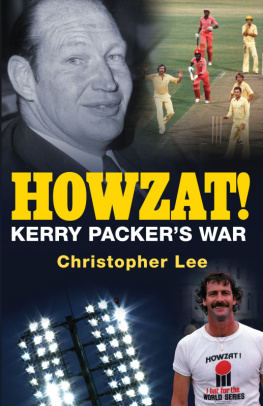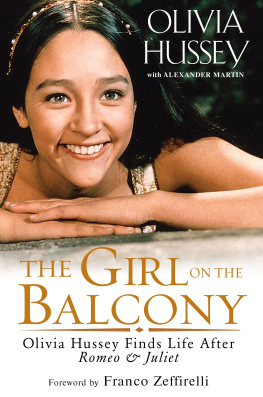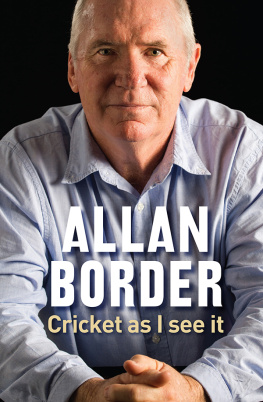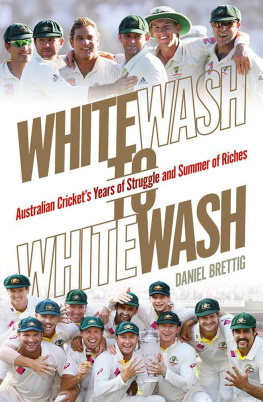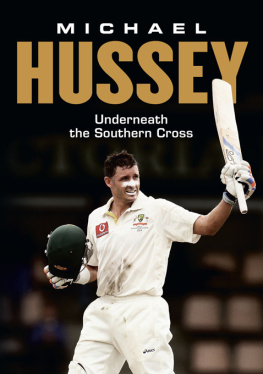I would like to dedicate this book to my late father, Ted, who had a passion for coaching and helping others.
I hope this book can help many others with their passion in life.
Contents
I WOULD LIKE TO thank and acknowledge the efforts of David Sygall for his many hours of hard work, during a personally trying time for him and his family. Thank you to Hardie Grant for their continued support and to my family for their loyalty and support over many years. I would also like to acknowledge Martin Darviniza, who conceived the idea for this book.
D URING MY FORMATIVE years of playing cricket I became convinced that every teams dressing room was pretty much the same. The old blokes would talk, the young blokes would listen and there were basic unwritten rules about how to celebrate wins and deal with losses. This perception only strengthened for me over years of club, first-class and international cricket, as that dynamic, with some small variations, came up time and again. But there was one dressing room, of all the hundreds I had been part of, that became etched in my mind as a striking example of how much cricket was evolving and the challenges this would bring. It got me wondering whether the game I grew up with, and love so dearly, would ever be the same.
The Chennai Super Kings had every reason to be bitterly disappointed one night in May 2009 at Wanderers Stadium in Johannesburg. After being pipped at the post in the final of the Indian Premier League (IPL) the previous year by the Rajasthan Royals, our strong side, which featured the likes of MS Dhoni, Matthew Hayden and spin king Murali, was confident of going all the way. Instead, our campaign fizzled when we were soundly beaten in the semifinal by the Royal Challengers Bangalore. A loss is a loss and I have experienced plenty of them. But this was different. Far from being the usual scene, our losing dressing room quickly unravelled into a muddle of competing interests and attitudes.
It was the second season of the IPL and we had been contracted to clubs for the first three seasons before player trading was allowed, meaning our side was largely unchanged between 2008 and 2010. Despite spending only a small amount of time together in preparation, the continuity across three years gave us, I believed, a chance to create a spirited unit that would work together to achieve our best possible results. But, as I looked around the dressing room in the moments after that loss to Bangalore, I felt anything but a sense that we had all been pushing in the same direction.
From the players booth I looked out at a deeply disjointed environment. In one corner there was a group of players in quiet conversation about what had gone wrong. Coulda, shoulda, woulda was probably the gist of their chat. Elsewhere, the coaches were grumbling among themselves discussing life, the universe and who knows what. The guys who had not played that night were leaning back against the lockers looking very relaxed, most having a giggle and a muck around. Some guys were doing media and others were talking to friends or family while the team manager buzzed around, organising interviews, explaining who was on which flight, where to leave packed bags, and a million other things. It was a group of individuals in one room who seemed to me to have very different motives. It was anything but the kind of team environment I had become accustomed to. We needed an icebreaker to bring things to some kind of conclusion, and it came from one of the coolest cricketers I have ever met.
The reluctant superstar MS Dhoni never raises his voice, does not say much on the field and little more off it. He is more inclined to explain the specs on his latest favourite motorbike than give deep thoughts about tactics or techniques. But he became captain of India for a reason when he does say something, it is well worth listening to and nearly always has a worthwhile effect. This turned out to be one such occasion. Dhoni must have sensed the disunity in the room and, without a hint of emotion, sent a very clear message about what he thought had been going on and what had to happen.
Some people play for money, Dhoni said softly but with typical authority. Some want the women, the parties, the fame. Others play just because they love the game of cricket. I want every player here to go away from this tournament and work out why they play the game. Dhoni said he expected everyone to be honest and open about their conclusions when they returned for the following season.
Dhonis forthright message, to me, was visionary, as it encapsulated in a few sentences the changing landscape of world cricket. The club-based Twenty20 leagues bring together players from different countries and cultures, which is a wonderful thing. It provides many positive outcomes. However, it can no longer be taken for granted that everyone within a dressing room shares the same motivations.
Playing cricket for the love of it had always come naturally to me. The physical and mental challenges and the camaraderie of working towards a goal with your teammates was all I ever needed to push me towards being at my absolute peak. The rest the parties, the money, the travel is great. But, really, it was always just a bonus. The focus for me was consistently and overwhelmingly on becoming as good a cricketer as I could possibly be, as an individual and as a contributor to the teams I represented.
In this Chennai team there was no doubt that some players were more interested in partying than playing cricket. The effect was that several players in the squad felt as though they were wasting their time, if not being betrayed. Dhonis message got straight to the point and summed up the situation. His words must have hit close to home for most people in the room because where once there was a messy hum there fell a stunned silence.
In the time since that night in Johannesburg I have pondered whether Dhonis words had an explicit effect. But just due to his openness and honesty, I believe, the following season there was more trust between the players and more of a belief that we were a united group with a common goal. When there were things on your mind you could talk to the bloke next to you about them. If there were concerns you held about something within the team you could raise them at group meetings. All of a sudden it was acceptable to step out of your shell and engage with the team rather than just concentrate on what you had to do individually. I certainly felt very comfortable in that Chennai team the season after that semifinal exit. I related well to my teammates and felt I could say what I wanted and would not be persecuted for it. Of course, it is impossible to measure precisely the impact Dhonis address had on us. But the fact is, we won the IPL the next season and then took out the Champions League. And we won the IPL the following year, too.
Honesty sessions are certainly nothing out of the ordinary in cricket dressing rooms. I have been in hundreds of them. And they are nearly always the same. Those old blokes would say, Weve gotta work together! Weve gotta train harder! Weve gotta want it more! and the young guys would nod with a mixture of fear and enthusiasm. It is a very generic and traditional message. But what MS Dhoni said that day was, I believe, very much the honesty session for the modern era.
In cricket today as in life generally there are so many more variables, so many extra pitfalls and distractions that can creep into the dressing room and onto the field, placing extra pressure on individual performance, team unity and, ultimately, results. Just in the time since I first played for Australia, in 2004, cricket has undergone enormous changes, tossing up unprecedented challenges and opportunities, not only for administrators and officials but also for current and future players. These challenges have changed the concepts of excellence and success and forced all of us to reconsider our priorities in the game. It is something MS Dhoni clearly recognised and perfectly expressed.


